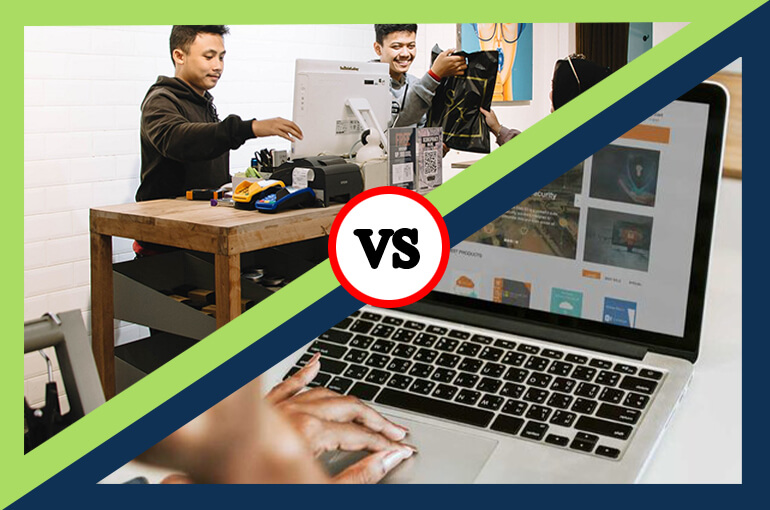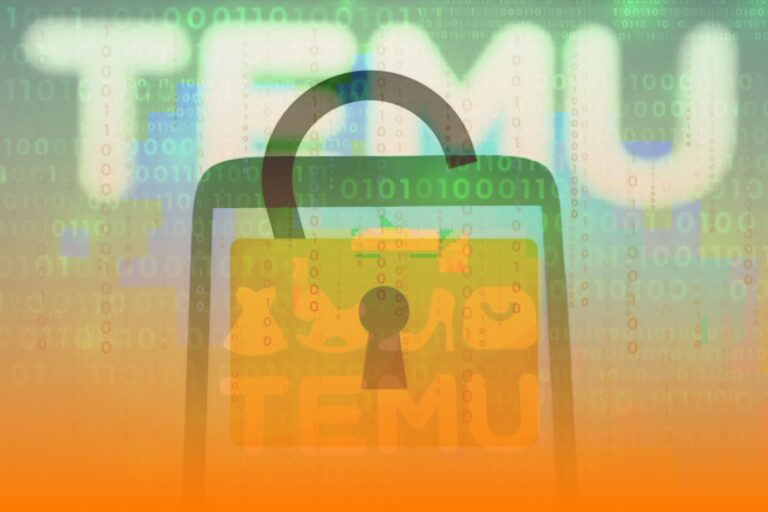Brick and Mortar vs Online: Opportunities and Challenges for Businesses
When brick and mortar vs. online, it will create many chances, challenges so you need to comprehend the features of these two models as well as business’ strengths and weaknesses for your business to go the right way. The overall goal is meeting the demand of customers and make them satisfied. Useful information about brick and mortar stores as well as online stores following will help you perform this goal.
What Is the Brick and Mortar Store?
Brick and mortar store is a traditional street-side business offering products and services directly in an office or store which is owned or rented by businesses. Some brick and mortar stores such as the local grocery store and the corner bank, etc.
What Is an Online Store?
The online store is a business allowing customers to find, order and pay for products and services through the Internet. Customers can reach with the business by accessing the website, application, etc.
Brick and Mortar vs Online: Both Advantages and Disadvantages of These Two Types of Business
Brick and mortar store
Pro #1. The great location can become a marketing way
This is a strong point of brick and mortar stores in comparison with online stores. The storefront is like a marketing tool because passersby can see your store while they are driving or even go inside. A store is in a great place that can help you promote your brand through personal referrals or word of mouth from those in the area.
Pro #2: The chance to promote your brand based on customer’s experience
No matter how many people are using the online shopping method by its convenience, the Internet still cannot compete when mentioning about customer’s experience. At the first-time shopping of customers at your brick and mortar store, you can take advantage of this chance to convert customers to loyal brand advocates by impressing and creating a unique experience for them.
Face-to-face interaction is a big plus if you know how to staff with knowledgeable, friendly people. This makes customers come back more and more.
Pro #3: Define brand legitimacy and longevity
Online retail is believed more and more when most people move in that direction. However, it is difficult to enter credit card digits onto a website when customers have never listened before. Their belief is built by seeing products with their own eyes even try them before buying.
Con #1: Much benefit – Much risk
Costs such as rent, taxes, employees, utilities, etc., they can cost more your money rather than the cost of a website if everything doesn’t develop well. If you are a starter in business, you should consider and select lower-cost alternatives to check operating effectiveness.
Con #2: Continuous presence is inflexible
It’s not surprising brick and mortar business owners usually work harder than online store owners. Because presence in the store is an important task, you can’t ignore your staff in there doing all they want. Your supervision is very necessary for running your business.
Online store
Pro #1: Low startup cost
Instead of investing in operating expenditures such as rent and utilities, you only need to invest a website with less cost and can get your business up and running quickly.
Pro #2: The convenience of eCommerce
You needn’t come out of the house, just some click anywhere as well as any time and products will be delivered directly to your door in a day or two. Therefore, eCommerce become the best choice because of its attractive convenience. On the other hand, for owners, they can do anything while their businesses are still working smoothly.
Con #1: Online business operation is not easy
Running an online business need much more than the initial costs. Most people said that e-commerce expenses were significantly lower than the brick and mortar store. In fact, after building a brand and realizing revenue, infrastructure costs, competitor pressure and other factors make it difficult to develop business. Even after a few years, some online stores turn to brick-and-mortar stores in spite of expenses such as rent, inventory warehousing, employee labor, property taxes, and more. However, total costs still are cheaper.
Con #2: Build double trust
It is difficult to have real relationships with customers without personal interaction directly. That is why you need to promote more to give customers confidence in your store and assure them you’re a trustworthy brand. The extreme importance is online retailers must provide leads with as much knowledge and information as if they were staying your brick and mortar store.
Con #3: Digital marketing is not simple
There’s that question of “How do people know your business exist?” is a difficult question. You need to spend time and budget to market for customers knowing your brand. Things like SEO pay per click advertising, social media management, and content marketing will make you a headache.
On the other hand, brick and mortar store has many different advertising and marketing methods such as television and radio commercials, newspapers, and billboards. However, traditional advertisement methods will not be effective for online stores as modern social media and digital advertising. So, the best choice for online stores is digital marketing. Digital marketing is not as simple as everyone often think. Some businesses don’t catch up as well as take advantage of it and this leads businesses to risks, especially new small businesses.
Why Do Customers Choose the Brick and Mortar Store?
The purchasing option at brick-and-mortar stores depends on age, gender, and even location. The biggest reason that makes customers choose brick-and-mortar stores is the ability to see, feel and try out items before buying.
For women, namely fashion items, this is the first factor for in-store shopping. They want to talk directly to a sales representative and get more information and advice about products or services. For men, the ability to bring an item home that day is immediate gratification.
In fact, help from a store associate is not an important factor. The core factor is the in-store experience, especially for customers under 35 and over 65. Because they have more free time available and they want to enjoy their life including shopping.
Next shopping object at brick and mortar store is rural customers. In spite of the inconvenience of delivery and return due to physical distance, they still don’t prefer shopping online. With them, shopping is a large family event. They can enjoy a shopping outing in retail stores, the mall with relatives, friends along with other activities such as have dinner, play game, have coffee, etc.
Customers don’t like paying extra cost even ship costs, so they choose to purchase at the store. On the other hand, they can get goods immediately instead of waiting for shipping. For unpleasant individuals, they also don’t want to face the hassle and complexity of returning unsatisfied items. Therefore, they go to the brick and mortar store to make sure that products being suitable for them.
Why Do Customers Choose the Online Store?
While immediate gratification may drive consumers to a physical store, convenience is what frequently draws them to online shopping. Because it is available to shop 24/7.
Except for immediate gratification, convenience is also a factor drawing customers to the online store. Being able to shop anytime, anywhere is a significant motivator increasing online sales every year. If you are a shopper, don’t purchase at midnight or in your sweats because it can affect your money pocket seriously.
Customers won’t spend too much money when online shopping, they only are laser-focused on necessary goods. For brick-and-mortar stores, they may stop to get a meal as well as visit other stores and make the wasteful expenditure. Besides, they can compare prices and find the best possible deals immediately.
Besides, looking for parking, standing in line or dealing with crowds is also hassle reasons leading consumers to the online store. Free shipping and free returns can also make or break the decision to buy online or buy at the physical store.
Consumers can save precious time rather than visiting multiple stores in different locations. Scarce products are found easily via some clicks.
Relationship of Brick and Mortar vs Online
Modern customers usually use features of both channels to create convenience and to reach their goals.
They can use the website or social media of brand to read reviews, compare prices and find out features of products that they want to buy. After that, they come to the brick and mortar store to buy because of wanting to make sure product quality. This makes trillions of dollars abandoned in online shopping carts.
In contrast, customers go to the physical store to see and feel products to make sure they understand them clearly. Especially, most of them always check the price by phone before making purchasing decisions. After that, they buy these products through the Internet to get promotions as well as discount programs at a lower price.
Leverage the Similarities and Differences of Both Two Model to Optimize Business Effectiveness
Participate in the e-commerce world
Brick and mortar stores are holding the economic power and this strength will decrease in the future and give place for online stores. To counteract this, brick-and-mortar stores need to participate in the e-commerce world while operating brick-and-mortar stores to optimize business’ revenue.
Currently, under fifty percent of small businesses take advantage of the power of e-commerce. This means they are missing out much money in the virtual cart while the e-commerce model is developing continuously. Time by time, small businesses will be limited potential business power if there is no online presence.
The limits of a brick and mortar store will change into advantages if you know how to combine both models with the limitless potential of the Internet.
Give your customers more value
Some delivery costs will incur when buying online, so businesses can offer special deals or free shipping when the purchase amount meets a certain threshold.
Commonly, customers usually forego visiting physical stores because of getting the best deals online. Therefore, you should provide a better deal in-store to attract your customers and drive traffic to brick-and-mortar stores. This creates opportunities to give customers a good experience at the store.
Products’ prices must match either to your online deals or your competitor’s price. This will make customers ignore the price factor and not care about your competitors because they count on getting the best price from your store.
Sync your online store and physical store
You must sync your efforts online and in-store such as a discount program happening in the brick and mortar store as well as an online store. If customers see the online and in-store price being different, they feel confused and you are missing an opportunity to create a good client relationship.
Conclusion
Before choosing the brick and mortar store or online store, you need to understand who your target audience is and how the best way to reach them. This will help you not waste time and money as well as make your business more and more developed.









